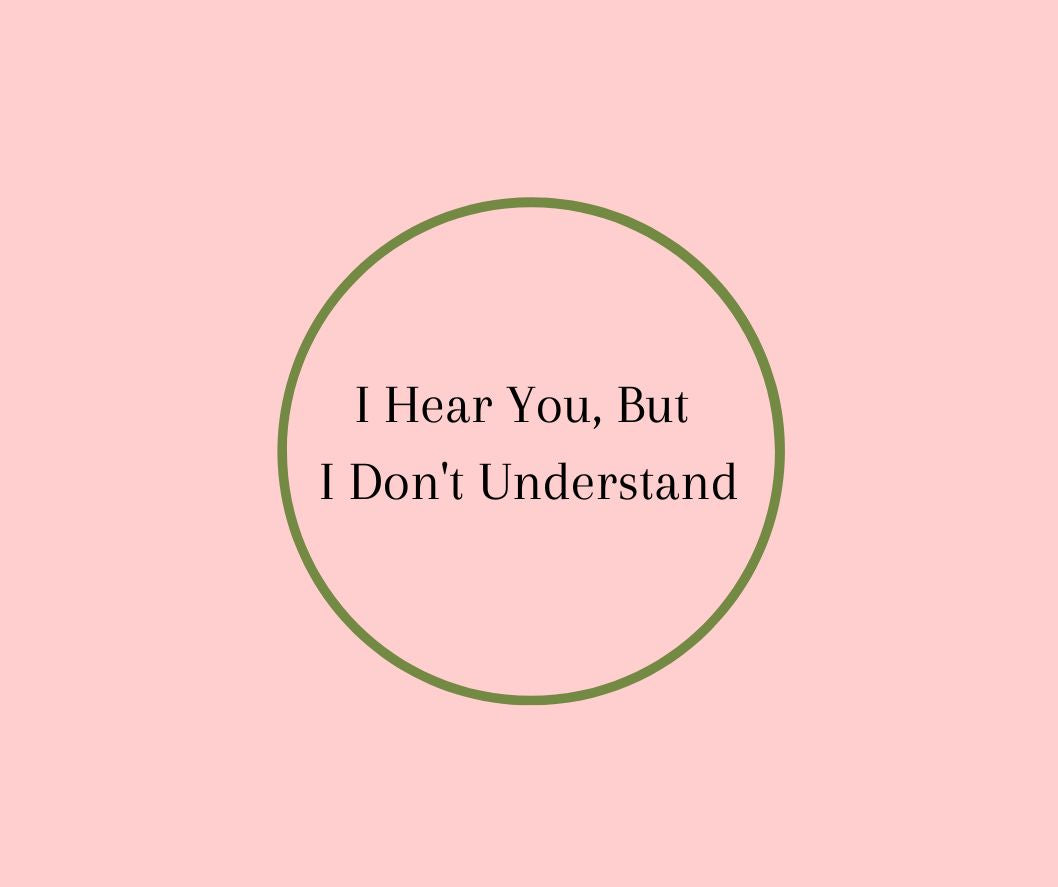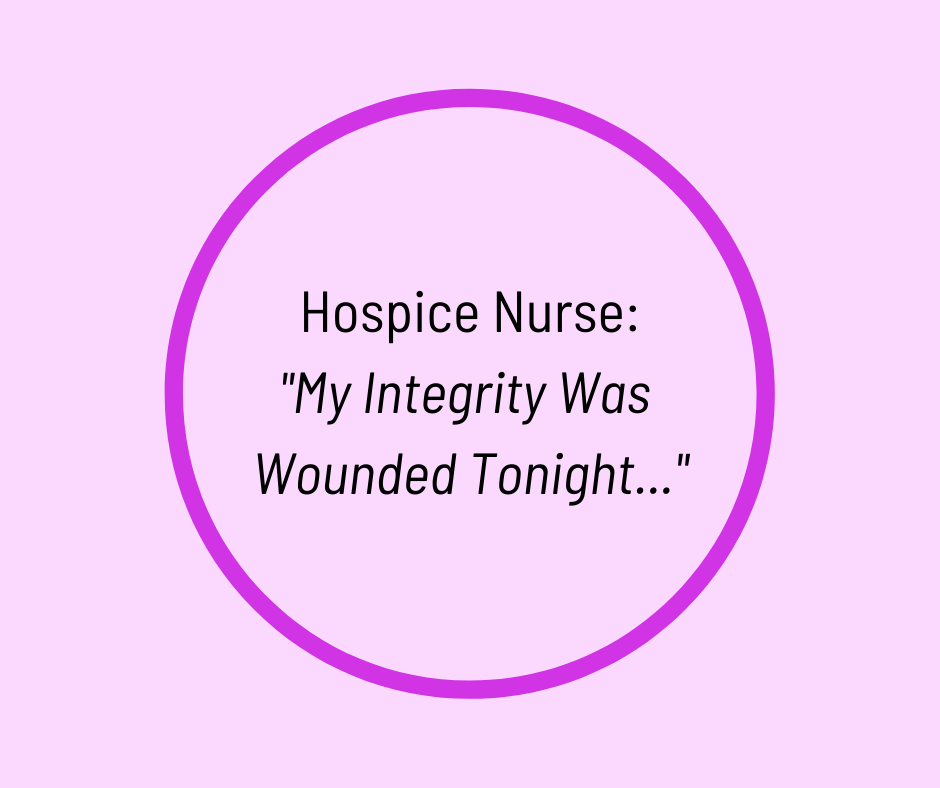My mother came to stay with us for the last months of her life. She was admitted to my hospice and services began as soon as she arrived.
A bit of history - my mother and my relationship was at its best when we were miles apart. (It is interesting as I write this now 20 years after her death it is hard for me to draw on the negative, distraught feelings I am writing this blog about. Time certainly does ease emotional pain.) Anyway, I was having a struggle with mother being in my house, caring for her, and dealing with the reversal of our roles--I was now the mom and caretaker. She was more the child that needed care. The interactions were not going well.
One day I had just about had it. I called our hospice social worker with a cry for help. Sitting in my bedroom with the door closed, in hushed tones and tears, I said, along with many other thoughts, “I don’t think I love her”.
For a long time I talked and Diane listened. Finally, as I wound down, had said all my guilt and fears, Diane softly said “Love is a verb. It is an action word and right now you are showing your love for your mother.” There were other words of wisdom that afternoon in my bedroom along with support, empathy, and compassion. Yet now, 20 years later, it is “Love is a verb” that has stayed with me.
This is the story that came to mind when I decided to write a blog for National Social Work month. Social work, to me, is about saying the right words at the right moment, words that have a profound effect on a person’s life from that point forward. Being the listener with just a touch of direction.
I think most people see the Social Worker role as problem solving for social and domestic issues and yes, that is part of the job description, but the responsibilities are so much more.
I can only speak for the hospice arena when I describe the variety of skills and duties that come under their competent direction. In addition to problem solving social and domestic issues, Social Workers bring nurturing, emotional support, and guidance to patients and families. They bring that same support to their hospice team members. They lead support groups for families (pre-death and bereavement), facilitate a team support group and give community and hospital in-services. I’m not implying that others (nurses, home health aides, chaplains) aren't nurturing, guiding, and supporting (because those qualities are a requirement for anyone who works in hospice), but I am saying that social workers have incredible people skills. I consider it an important part of their job description.
I have a special place in my heart for social workers. I’ve often thought if I could have done a do over I would have chosen to be a social worker.
SOMETHING MORE ABOUT... SOCIAL WORKERS: I want to be like you when I grow up... After my mother died, I wrote THE FINAL ACT OF LIVING: Reflections of a Long Time Hospice Nurse. With stories and experiences at the bedside of hundreds of people at the moment of their death, THE FINAL ACT OF LIVING explores the topics of living with a life threatening illness, fear of death, understanding the signs of approaching death from disease, the dying process, stages of death, the normal grieving process, living wills and other end of life issues. It is written especially for chaplains, social workers, counselors, palliative care nurses, hospice nurses and hospice volunteers. Teachers use the book as a text book in colleges and universities.








1 comment
Joyce
Barbara, I follow your articles and respect your insights SO much!!
From a former Respiratory /Pulmonary Rehab Profess’l turned into Hospice Volunteer simultaneous with becoming a Funeral Director; now a Certified EOL Life Issues and Life-Transitions Coach, Grief Facilitator, Life Celebrant…etc. Wish I could meet you. Thanks for all you do!!!!
Barbara, I follow your articles and respect your insights SO much!!
From a former Respiratory /Pulmonary Rehab Profess’l turned into Hospice Volunteer simultaneous with becoming a Funeral Director; now a Certified EOL Life Issues and Life-Transitions Coach, Grief Facilitator, Life Celebrant…etc. Wish I could meet you. Thanks for all you do!!!!